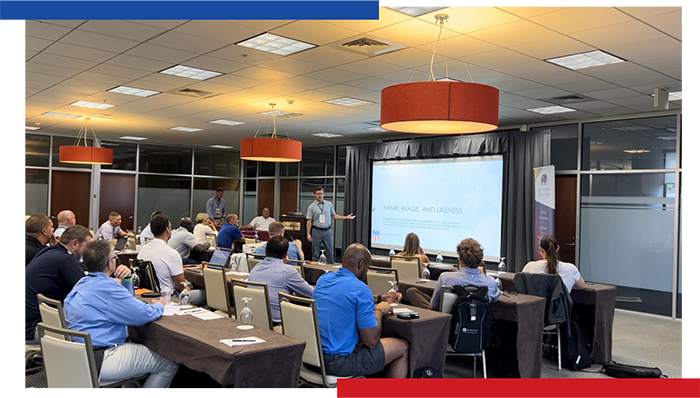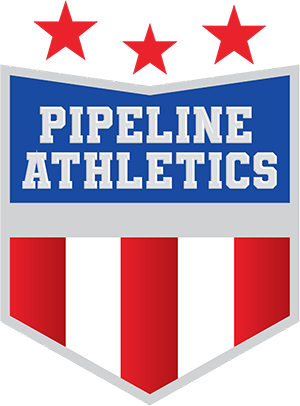
BLOG
Your Questions, Our Insights: Shaping the Pipeline Athletics Blog Together
We value your input! Submit questions or topics you’d like to see featured on the Pipeline Athletics Blog. Your curiosity drives our content, so feel free to share your thoughts and help us provide you with the information you seek.



Best ways to endorse
Athlete endorsements can be valuable for both the athletes themselves

What should high school athletes know about NIL
Name, Image, and Likeness (NIL) refers to the ability of

Tips for student athletes to endorse their parents company in regards to NIL
The concept of name, image, and likeness (NIL) is particularly

Frequently asked questions that parents and student athletes commonly have about NIL:
- What is NIL? NIL stands for Name, Image, and Likeness. It refers to the rights of college athletes to control and profit from their name, image, and likeness. In the past, these rights were restricted by the NCAA, but recent policy changes now allow athletes to monetize their personal brand and endorsements while participating in college sports.
- What is the right of publicity? The right of publicity is a legal concept used to prevent or allow the use of an individual to promote a product or service. Name, image, and likeness are the three elements that make up the right of publicity.
- What does the NCAA’s interim policy on NIL allow? The NCAA’s interim policy on NIL allows student-athletes to make money from their personal brand. However, it can be a bit complex to navigate as NIL laws vary by state, meaning your state may or may not have its own NIL regulations you must adhere to. Whether high school students can participate in NIL activities depends on the rules set by your state’s high school sports association.
- Additionally, colleges and universities often have their own unique rules for NIL.
- What are some examples of NIL activities for student-athletes? Examples of NIL activities for student-athletes include autographs and memorabilia, camps and clinics, personal appearances, merchandise, affiliate/ambassador roles, NFTs, blogging, podcasting, public speaking, music, art, etc.
Tips for student athletes to endorse their parents company in regards to NIL
The concept of name, image, and likeness (NIL) is particularly relevant when it comes to student athletes endorsing their parents’ company. NIL refers to the ability of athletes to profit from their own name, image, and likeness, including endorsements and sponsorships, without jeopardizing their eligibility. Here’s how it pertains to your situation:
- Review the NIL policies: Familiarize yourself with the NIL policies established by your school, athletic association, or any governing bodies overseeing high school sports. Many jurisdictions have implemented NIL legislation or guidelines that outline what athletes can and cannot do when it comes to endorsements.
- Comply with NIL regulations: Ensure that endorsing your parents’ company aligns with the specific NIL rules and regulations in your area. Understand any limitations on the types of businesses you can endorse, the platforms you can use, and any disclosure requirements.
- Disclose your relationship: When endorsing your parents’ company, it is crucial to disclose your familial relationship prominently. Make it clear that you are endorsing the business because your parents own it. Transparency is key to maintaining compliance with NIL regulations and avoiding any potential conflicts of interest.
- Seek professional advice: Consider consulting with legal or financial professionals who specialize in NIL matters. They can provide guidance on navigating the intricacies of NIL rules, ensuring you stay within the bounds of the law, and protecting your eligibility.
- Leverage social media: Utilize social media platforms to promote your parents’ company while adhering to NIL guidelines. Share your experiences, highlight the products or services, and engage with your audience. Be mindful of any restrictions on using your school’s logos, trademarks, or intellectual property in your endorsements.
- Consider fair market value: When endorsing your parents’ company, it’s important to ensure that any compensation or benefits you receive are consistent with fair market value. This means that the value of your endorsement should be reasonable and comparable to what other individuals in similar circumstances would receive.
- Maintain academic and athletic commitments: While NIL allows you to profit from endorsements, it’s crucial to balance your commitments as a student athlete. Prioritize your academic responsibilities and ensure that your endorsements do not interfere with your ability to participate in athletic activities or comply with team rules.
- Remember, NIL regulations can vary depending on your location, so it’s important to familiarize yourself with the specific guidelines applicable to your jurisdiction. Stay informed about any updates or changes to NIL rules to ensure continued compliance.
What should high school athletes know about NIL
Name, Image, and Likeness (NIL) refers to the ability of college athletes to profit from their own name, image, and likeness. While you mentioned high school student athletes, it’s important to note that NIL regulations primarily apply to college athletes in the United States. However, understanding NIL can still be beneficial for high school athletes who aspire to compete at the college level. Here’s what you should know:
- Stay informed: Familiarize yourself with the current rules and regulations regarding NIL in college sports. These guidelines can vary by state and institution, so make sure you are up to date with the latest information. Keep an eye on news, updates from the NCAA, and your state’s legislation.
- Understand your rights: NIL allows athletes to monetize their name, image, and likeness. This means you have the opportunity to earn money through endorsements, sponsorships, social media promotions, autograph signings, and more. You have the right to control and profit from your personal brand.
- Focus on academics and eligibility: While NIL opportunities can be exciting, remember that maintaining your academic eligibility is crucial. Ensure that your grades and standardized test scores meet the requirements for college admission and athletic eligibility. Balancing academics and sports will position you for success.
- Build your personal brand: Start developing your personal brand early. Use social media platforms responsibly and strategically to showcase your skills, personality, and interests. Engage with your followers and maintain a positive online presence. Building a strong personal brand can attract potential sponsors and opportunities in the future.
- Seek guidance: Consult with your parents, coaches, and trusted mentors to navigate the complexities of NIL. They can help you make informed decisions, understand legal considerations, and evaluate potential opportunities. Consider working with a sports agent or attorney who specializes in NIL to ensure compliance with regulations and protect your interests.
- Be mindful of conflicts: While you have the right to pursue NIL opportunities, it’s important to consider potential conflicts with your team, school, and NCAA regulations. Understand the rules and guidelines for endorsements and sponsorships to avoid any violations that could jeopardize your eligibility.
- Develop financial literacy: As you begin to earn money through NIL, it’s crucial to develop financial literacy skills. Learn how to budget, save, and invest wisely. Consider consulting a financial advisor who can help you manage your earnings and plan for the future.
Remember to stay informed and adapt to any changes in NIL regulations. While NIL presents exciting opportunities, it’s important to maintain a balanced approach and prioritize your education and athletic development.
Best ways to endorse
Athlete endorsements can be valuable for both the athletes themselves and the brands they endorse. Here are some of the best ways for athletes to endorse something effectively:
1. Authenticity: Athletes should choose endorsements that align with their personal values, interests, and lifestyle. Authenticity is crucial for building trust with their fan base and ensuring a genuine connection between the athlete and the endorsed product or brand.
2. Relevance: Athletes should consider endorsing products or brands that are relevant to their sport or their target audience. For example, a basketball player may be a better fit for endorsing sports apparel or equipment rather than beauty products.
3. Product Experience: Athletes should have a genuine experience using or benefiting from the endorsed product. This firsthand experience allows athletes to speak confidently about the product’s benefits and enhances their credibility.
4. Selective Approach: Athletes should be selective about the brands they endorse to maintain their credibility. Endorsing too many products or competing brands can dilute the impact and make the endorsements less effective. Focusing on a few carefully chosen partnerships can be more impactful.
5. Social Media Presence: Leverage social media platforms to engage with fans and promote the endorsed products. Athletes can share their personal experiences, images, and videos showcasing the product’s benefits, and encourage followers to try it themselves. Engaging with fans through comments and messages can also strengthen the endorsement.
6. Storytelling: Athletes should utilize their personal stories and experiences to create compelling narratives around the endorsed product. Sharing how the product has positively impacted their performance, recovery, or overall well-being can resonate with fans and increase the product’s appeal.
7. Philanthropy and Social Causes: Partnering with brands that support charitable initiatives or social causes can enhance an athlete’s endorsement. This collaboration showcases the athlete’s commitment to making a positive impact beyond their sport and can inspire fans to align themselves with the brand.
8. Long-Term Partnerships: Establishing long-term partnerships with brands allows athletes to build a deeper connection with the product and the company. It also provides opportunities for continuous collaboration and growth together.
9. Professionalism: Athletes should conduct themselves professionally both on and off the field. Maintaining a positive public image, being punctual, and delivering on contractual obligations are essential for successful endorsements.
10. Legal and Financial Considerations: Athletes should carefully review endorsement contracts to ensure they are fair, protect their rights, and align with their long-term goals. Involving legal and financial professionals can help athletes navigate the complexities of endorsement agreements.
Remember that each athlete is unique, and the best endorsement strategies may vary depending on factors such as their sport, target audience, and personal brand. It’s important for athletes to carefully consider their values, interests, and goals when selecting endorsement opportunities to ensure a mutually beneficial partnership.
Average transaction
It is difficult to provide an average transaction amount. The value of NIL deals can range from modest amounts, such as a few hundred dollars for smaller endorsements or social media promotions, to significant sums for high-profile athletes, potentially reaching thousands or even millions of dollars for endorsement deals with major brands.
It’s important to note that the landscape of NIL transactions is still evolving, and the market will likely continue to develop as more athletes take advantage of these opportunities and establish their market value. The actual average transaction amount may become clearer as more data becomes available over time.
Financial Literacy Guide for High School Student Athletes
As a high school student athlete, it’s important to develop a solid understanding of financial literacy. This guide aims to provide you with essential information and tips to help you manage your finances effectively during your time with Pipeline Athletics.
1. Budgeting
Creating a budget is the foundation of financial success. Start by identifying your sources of income, such as part-time jobs, allowances, or scholarships. Then, make a list of your expenses, including training costs, equipment, travel expenses, and personal expenses. Allocate your income accordingly, ensuring that your expenses don’t exceed your earnings. Tracking your spending and adjusting your budget as needed will help you stay on top of your finances.
2. Saving and Investing
Developing a habit of saving and investing early on will greatly benefit you in the long run. Consider opening a savings account specifically for your sports-related earnings. Set aside a portion of your income regularly, even if it’s a small amount. Over time, your savings will grow. Additionally, educate yourself about investment options, such as stocks, bonds, or mutual funds. However, before investing, seek guidance from a trusted financial advisor to ensure you make informed decisions.
3. Scholarships and Financial Aid
Take advantage of scholarship opportunities and financial aid programs available to student athletes. Research and apply for scholarships that align with your athletic achievements, academic performance, or community involvement. Consult your school’s guidance counselor or coach for assistance in finding suitable options. Additionally, explore the financial aid resources provided by Pipeline Athletics or other sports organizations you may be associated with.
4. Insurance and Health Expenses
As a student athlete, it’s crucial to prioritize your health and well-being. Familiarize yourself with any insurance coverage provided by your school. Understand the terms and conditions of the coverage, including deductibles, copayments, and limitations. Consider obtaining additional insurance if needed, such as personal injury coverage or sports-specific policies. It’s essential to have a plan in place to manage potential health expenses effectively.
5. Professional Advice
Seeking professional financial advice can help you make informed decisions and develop a solid financial strategy. Consider consulting with a certified financial planner or accountant who specializes in working with young athletes. They can provide guidance on budgeting, investing, tax planning, and long-term financial goals. Having a professional in your corner will ensure you’re on the right track to financial success.
6. Avoiding Financial Pitfalls
Be cautious of common financial pitfalls that can harm your financial well-being. Avoid excessive spending on non-essential items, unnecessary loans, or credit card debt. Be mindful of your financial obligations and make informed decisions based on your budget and long-term goals. Stay away from risky investments or get-rich-quick schemes that promise unrealistic returns. Your long-term financial stability should be your priority.
7. Education and Continued Learning
Financial literacy is a lifelong journey. Take advantage of educational resources available to improve your financial knowledge. Read books, articles, or online resources about personal finance and investing. Attend workshops or seminars on financial literacy when possible. The more you educate yourself, the better equipped you’ll be to make wise financial decisions throughout your athletic career and beyond.
Remember, your time as a student athlete is an incredible opportunity. By developing strong financial literacy skills, you’ll be better prepared to manage your finances, make smart financial decisions, and set yourself up for success!



